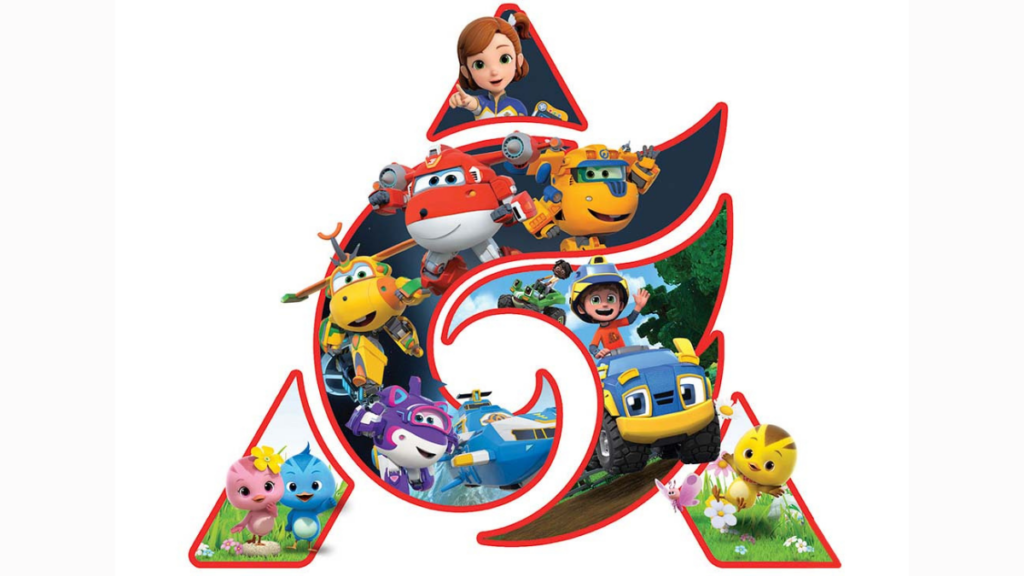
Alpha Group stands tall as a pioneering force in kids’ content creation within China, boasting a legacy since 1993 that has seen remarkable growth across diverse sectors. From animated IPs to brand licensing, toys, consumer goods, and beyond, the company has etched its mark in the global entertainment landscape. Having its headquarters in China, the company has its offices in France, the Netherlands, United Kingdom, Canada, United States, Mexico, Brazil, Middle East, and South Korea, employing more than 3,400 people.
At FILMART 2024, AnimationXpress had the privilege of conversing with Echo Jiang, the licensing director of Alpha Group’s Licensing Department, delving into the intricacies of their business model, content strategy, and future endeavors.
Here’s the excerpt from the interview:
Alpha Group has emerged as one of the leading animation studios in China, with its IPs gaining global popularity. What factors do you think are the reason for the success of the group?
Certainly. Before delving into animation, our core focus was on toy manufacturing and distribution, both domestically and internationally. In 2009, we pioneered the fusion of toys and animation, which proved immensely successful. This success prompted us to establish our own 3D animation studio, leveraging our expertise in merchandising to seamlessly integrate products into our animated properties.
Could you elaborate on Alpha Group’s vertically integrated business model and how it allows the company to meet consumer demand for cultural entertainment?
Our business model is designed to streamline the production process for animations. We start by generating ideas internally or through market research. Then, we assess the feasibility of each project, considering factors like production budget and potential revenue streams from TV broadcasting, licensing, and merchandise sales. This internal vetting process ensures that we invest in projects with the highest chance of success.
Most of your core group IPs are 3D. Is there a higher demand for 3D shows compared to 2D in China?
While we do have some 2D productions, such as Pleasant Goat and Big Big Wolf, the demand for 3D content, especially among children, remains predominant. Internationally, 3D animation has become the mainstream for kids’ entertainment, though there is still niche appeal for 2D among older demographics.
Do you have any plans to create animations targeted at older audiences?
Yes, indeed. We recently embarked on producing content tailored for older audiences. For instance, we’ve segmented our Balala the Fairies franchise, introducing Balala the Fairies Jr for kids and Balala the Fairies for adults. This strategic shift reflects the evolving preferences of our fan base and allows us to diversify our offerings.
We’re also having some co-production projects in talks with international partners for the teenager and adult market segment.
Could you shed light on Alpha Group’s key markets for its animation IPs?
We initially focus on the Asian market, where our properties enjoy widespread broadcasting. However, we’ve also seen considerable success in regions like the Middle East, Europe, and Latin America, with titles like Super Wings and Katuri gaining traction across diverse demographics.
What’s the significance of having headquarters, toy factories, and studios in China, as well as offices in various locations around the world? How does that impact Alpha Group’s operations?
Our strategic setup allows for efficient coordination between different aspects of our business. With manufacturing facility in Shantou and animation studio in Guangzhou, we have tight control over the production process. Moreover, our international offices, including those in Hong Kong and France, facilitate partnerships and market expansion. This global presence strengthens our ability to adapt to local preferences and market dynamics.
What are some of the challenges that Alpha Group has faced in the ever-evolving entertainment industry? And how did the company overcome them?
One of the major challenges we’re addressing is the declining birth rate in China and some other Asian countries, which affects our target audience for kids’ entertainment. To counter this, we’re diversifying our content to appeal to older demographics. We introduced trendy toy lines, and concepts like the Blind Box products, designed to resonate with young adults.
[The Blind Box concept revolutionised the traditional toy market. The products are basically sold in opaque boxes, meaning customers do not know exactly what they are buying, offering unpredictable and fresh experiences for young adults.]
By adapting our strategy and product offerings, we aim to sustain our competitive edge in the market.
Is Alpha Group considering collaborating with Indian studios?
Yes, we’re actively exploring collaborations with Indian studios like Toonz for animation production. India presents a significant market opportunity with its vast consumer base and growing animation industry. Post Covid-19, we’re keen to leverage the strengths of Indian studios to create compelling content for global audiences.
What advice would you give to young artists aspiring to enter the animation industry in China?
Aspiring artists should embrace technological advancements like AI tools while honing their creative skills. While AI can aid in the production process, it’s essential to understand its limitations and leverage it as a tool rather than relying solely on it. By staying abreast of emerging technologies and continuously refining their craft, young artists can thrive in the dynamic animation industry.
Can you share any upcoming projects or initiatives that you’re excited about?
Certainly! We’re excited about the upcoming series and movies of Balala the Fairies, catering to teenagers and adults. Additionally, we have already made films of Super Wings and Katuri, and we plan to have second and third series for it. Moreover, we’re venturing into live-action productions, with a new title set for release later this year In China that will also be promoted worldwide.
How does Alpha Group envision its future growth and expansion considering the dynamic nature of the entertainment industry? Do you plan to venture into the VFX space?
While venturing into the VFX space may not be an immediate focus for us, we are actively exploring opportunities in immersive technologies such as Virtual Reality (VR) and Augmented Reality (AR). Currently, we have established strong partnerships with VR/AR equipment manufacturers for merchandising purposes in China. These partnerships allow us to leverage our IPs in conjunction with VR/AR equipment, not only in China but also on an international scale. The VR/AR equipment manufacturers possess content creation capabilities, and by integrating our IPs, we aim to extend our reach to global audiences. Additionally, we have developed AI figures based on beloved characters like Pleasant Goat and Big Big Wolf and Super Wings, enabling interactive experiences for fans, currently limited to China. Looking ahead, we aspire to expand the availability of these AI figures worldwide, further enhancing fan engagement and broadening our global presence.

